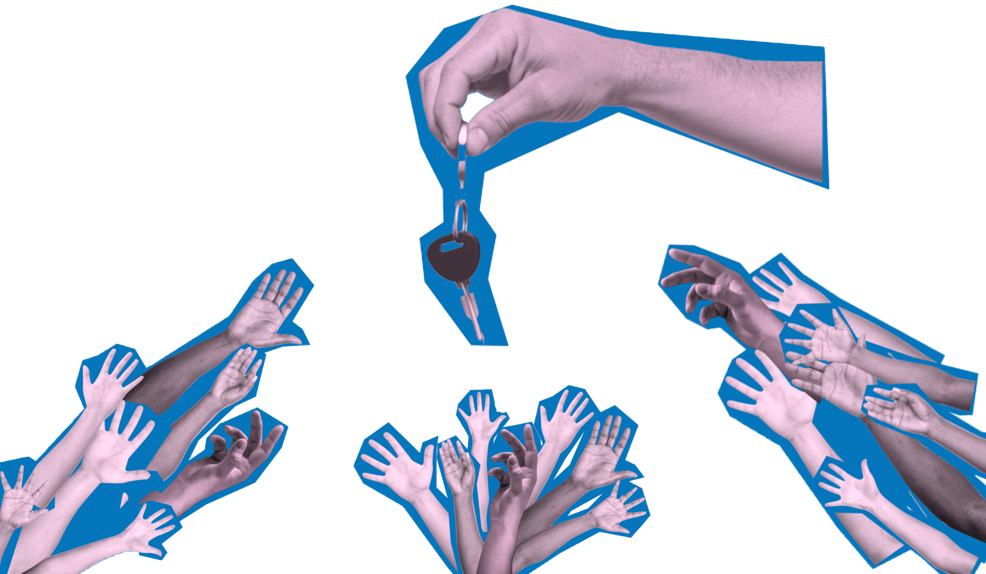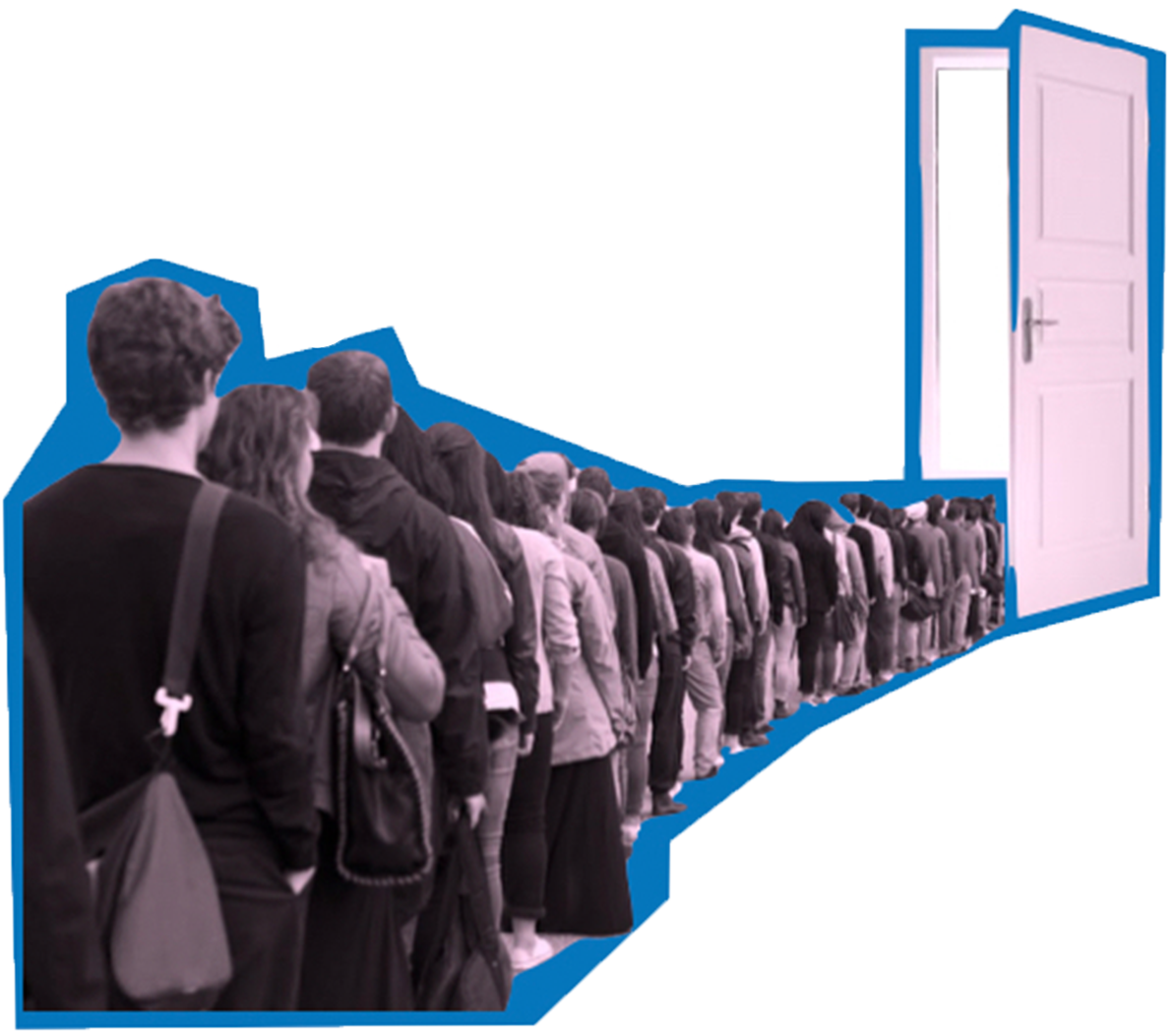What if your own name prevents you from getting an apartment? Abdul had to experience that. With Marie Blickensdörfer he talks about his experiences with discrimination on his hunt for an apartment in Berlin.
Here, you find the German version of the interview.
Here, you find a second interview in which the 23-years-old FU-student Hutham talks about her experiences with discrimination while looking for an apartment in Berlin.

My name is Abdul. In 2015, I came from Syria to Germany as a refugee. Now, I am 31 years old and live in Wedding with my son and wife. I currently work as a librarian.
The first place I went to when I came to Berlin was LaGeSo (Landesamt für Gesundheit und Soziales) to submit our papers. LaGeSo-time was very hard. We used to sleep in the street, because there were a lot of people coming at the same time and not enough employees to process our cases. And then I lived with a German family for four or five months. Afterwards, a friend offered me her apartment – so it was a sublease.
From 2017 to 2019, I sent tons of applications to almost every housing association here. Out of 50 applications, I had one viewing appointment. I submitted my applications, but there was no chance of getting an apartment. Finally, I found an apartment through a friend. The Syrian people I know all have different opinions. »Maybe it’s because we are refugees, maybe because of our names.« People inside the housing companies recognize the foreign names. Others say we wouldn’t get an apartment because we can’t find a job.

However, when I started applying for apartments, I had a job at an institution, which had a good reputation – but still, no answers, no chance. In the beginning, I was open about the fact that I am from Syria, but later not anymore – because maybe the sentence »I am from Syria« is not good. So I stopped mentioning it. But if a company asks you to apply online, you have to attach your personal documents, which show where you come from. You can’t hide it.
In 2019 my wife arrived in Germany after all this time of waiting. I found a small apartment and rented it, but without a contract, just from a friend. It never worked out for me with real estate companies. Living there was stressful since my wife was pregnant. The conditions for a baby were bad: no light, no space. My colleagues tried to help me find something new. One time, I found an apartment and asked a work colleague – since my German was not that good – if she could please call the landlord. She was told: »Yes, have him send his application.« I went back to their website and five minutes later the flat advertisement was gone. I told her: »It seems like the advertisement got hidden when you mentioned my name.«
At one point, I had to take three weeks off since I couldn’t manage 20 flat viewings while working full time. There were many people at the flat viewings and I realised that I had no chance against any young German. My friend told me, looking at some statistics in a Spiegel article: »You don’t have a chance if there is a European person or a German student at the same apartment viewing.«
When you get rejected, you won’t be given a reason, because it is an ›illegal one‹. Maybe I think positively, because lots of people can’t find apartments in big cities, including Germans – so maybe it’s not against me.
Nevertheless, especially my Syrian friends think differently. They speak about their own experiences of their rejections due to their names, nationalities, religious beliefs or appearances. I don’t want to say that, because I can’t tell for sure if the employee really has something against refugees. However, I am convinced that there are people who cannot understand why or that people have to flee from their homes. Maybe our feelings about discrimination are different. I think you guys are more sensitive with these things, because when I arrived here after all the experiences we made in Syria – with airplanes and bombs – lots of things are ›egal‹.
In the beginning of 2020, I wrote some applications on a website and sent them documents of my wife and me. She wears a ḥiǧāb. Before, with only my picture in the documents, out of 20 to 30 applications, I had one viewing appointment. After I added my wife’s picture: not anymore. So it’s not only a name problem, there’s more to it.



